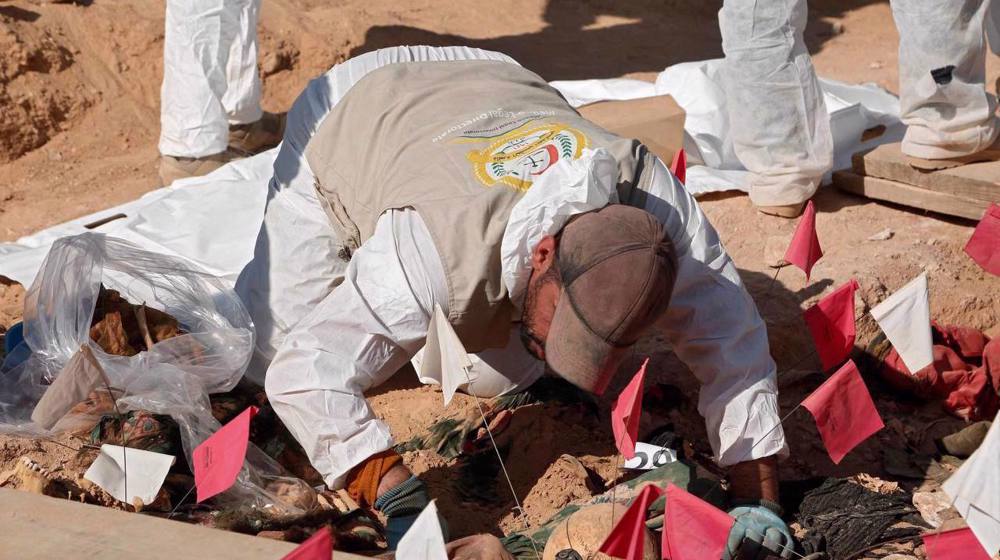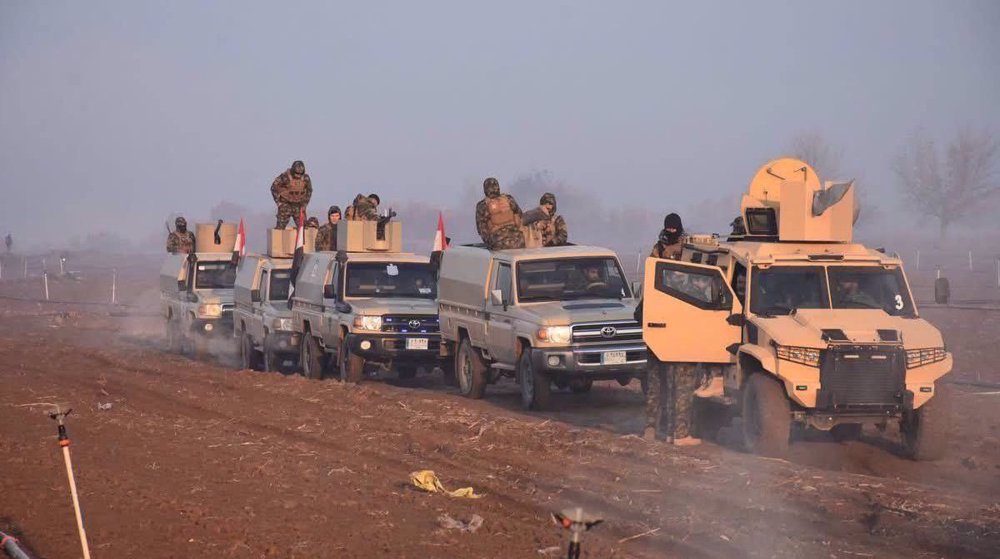Iraq’s Popular Mobilization Units confirm US attack on their base in Anbar
Iraq’s Popular Mobilization Units (PMU), commonly known by the Arabic name Hashd al-Sha’abi, say US forces in the country have carried out an airstrike on a number of their facilities in the western Anbar province, reporting casualties.
According to early reports, five facilities run by the Iraqi PMU forces in Anbar province and neighboring Syria were targeted in the attack on Sunday, which has left casualties, including over a dozen people dead with scores injured.
Reuters quoted PMU and other Iraqi military sources as saying that several Iraqi fighters were killed in the airstrike on their headquarters near the western Qaim district in Iraq’s Anbar province close to the border with Syria.
The report added that the strike was likely carried out by drones and ambulances were seen heading to the area.
The attack came after American officials said on Friday that a “US civilian contractor” had been killed in what they described as a rocket attack targeting an Iraqi military base housing US and Iraqi forces in the Arab country’s north.
Several US service members and Iraqi personnel were also wounded in the reported incident, Reuters added, citing a US-led military coalition, which has stationed itself in Iraq under the pretext of fighting the Takfiri terror group of Daesh.
Shortly after the attack, the US Department of Defense, Pentagon, issued a statement, announcing that it had carried out what it called "defensive strikes" in Iraq and Syria against the PMU facilities.
The Pentagon added that it had targeted three locations of the Iraqi fighters in Iraq and two in Syria.
The Pentagon says the raids targeted weapon storage facilities and command control locations, claiming that the bombings were in response to attacks targeting American forces in Iraq.
U.S. conducted defensive strikes in Iraq and Syria against 5 Kata'ib Hezbollah facilities in response to recent attacks against @OIR coalition forces.https://t.co/yvc1nIjMav
— Jonathan Rath Hoffman (@ChiefPentSpox) December 29, 2019
Hashd al-Sha’abi fighters played a major role in the liberation of Daesh-held areas to the south, northeast and north of the Iraqi capital Baghdad, after the terrorists launched an offensive in the country, overrunning vast swathes in lightning attacks.
In November 2016, the Iraqi parliament voted to integrate Hashd al-Sha’abi, which was formed shortly after the emergence of Daesh, into the military.
Over the past six months, Iraqi outposts accommodating American troops have come under at least 10 such rocket barrages, including the Friday launch.
Most recently, at least six Iraqi security forces were wounded after four Katyusha rockets hit a military complex that also houses US forces near Baghdad International Airport on December 9.
The US invaded Iraq in 2003 under the pretext of “war on terror.” The invasion was followed by rampant violence blamed largely on widespread opposition inside the country to the foreign presence.
In 2014, the Arab nation was attacked by Daesh, which had reared its head amid the volatility.
Washington amassed the coalition soon afterwards, and began renewed wholesale operations in the country at the head of scores of its allies.
The terrorists, however, reportedly resurfaced in Iraq recently, despite the presence there of around 5,000 US troops, and large-scale operations carried out by the coalition, which would repeatedly feature indiscriminate bombings.
Iraq exhuming remains of 100 Kurdish women, children killed by Saddam
Panama rejects talks with US over canal control
HTS rulers name al-Qaeda operative as Syria's new spy chief
Iran voices concern about rising insecurity, violence in Syria
VIDEO | Karachi sit-in amplifies nationwide call for justice for Parachinar victims
Iran strongly condemns Israeli bombing of Yemen's civilian infrastructure
VIDEO | Press TV's news headlines
VIDEO | Israel and Iran’s Nuclear Facilities?










 This makes it easy to access the Press TV website
This makes it easy to access the Press TV website